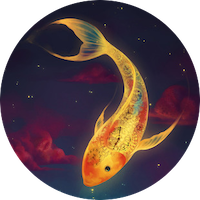It is common to hear nowadays that we are in the process of returning to a normal life, of creating a new normal. Many of us wonder, however, what those words mean since it is simply no longer possible to go back to a pre-pandemic status quo.
The virus has been a mirror, it has reflected the societies we live in; it has disrupted our lives and upended many of our assumptions, habits and routines. The pandemic has plainly exposed fundamental weaknesses in our systems, in our thinking as societies, and perhaps even in the way we used to carry out our daily lives. Weaknesses that in some way we normalized.
It has shown us how we had fallen into a spiral in which we somehow lost our collective awareness of the common good. It has reminded us the fragility of human life, and the illusory nature of the control we think we have over the world around us. The virus has also been implacable in exacerbating and widening the many inequalities we have in our world.
South Korean-German philosopher Byung-Chul Han says that the pandemic has not only exposed latent social differences, but also deepened them, “Covid-19 is currently showing that human vulnerability or mortality is not democratic, but depends on social status. Death is not democratic.”
In a recent interview he emphasized the importance of the collective awareness, of the joint action in a pandemic crisis -the concern of civility-; as well as, the conception of the common good in rebuilding the economy and what it could be a fairer and better society. Han describes this time as the dawning of a new era; where we are required to critically reflect about our preferences as a community.
And it seems to me that this broader vision of our collectiveness, a fundamental concern for others in our individual and community lives shall be a vital factor in building what it might be a new stage as humanity or “the new normal”. A wider vision of our public spirit not only in terms of the transformations needed for the emergence of a new economy, but also in the significant changes in mentality that would favor new lifestyles and consumption patterns that could be fairer and more responsible towards our planet and the beings with whom we share the only home we have. The virus has shown more than ever the intrinsic nature of our interdependence.
We can also envision the possibility of a different economy, one that is fairer for true prosperity, as many modern economists are now advocating. For example, economist Bruno Roche in his concept of Economics of Mutuality explains how companies can adopt a responsible and more complete form of capitalism that is fairer and performs better than the purely financial version operating today. In his thesis, he develops three underlying pillars for economic prosperity: nature, whose integrity we must preserve; human activities, which should flourish to drive holistic value creation; and financial means, which ensure our material needs. All of them of equal significance.
The pandemic has triggered more direct conversations in many grounds; hopefully this pause for reflection may allow us to reconsider what we thought it was normal but was taking us nowhere.
The uneasy feeling caused by this complex moment holds tremendous potential for transformation. It is a treasure of energy that we can grasp with both hands and use it to build something better.


Haru, es excelente, es una realidad y es una reflexión que no debemos retrasarla más, gracias